Olivia’s ‘call to action’
The world is mourning Australian superstar, Dame Olivia Newton-John, who passed away earlier this week after a long battle with cancer.
INTERNATIONALLY beloved Australian entertainer Dame Olivia Newton-John, 73, who lost her battle with cancer in California on Tuesday, was a passionate advocate of cancer research and rehabilitation, but little is known about her work with an Australian Jewish oncologist, which led to the founding of a Melbourne cancer institute bearing her name.
Born in Britain and raised in Australia, Newton-John’s own Jewish background has been widely known for years – her grandfather was Max Born, a Nobel Prize-winning German Jewish physicist, who was driven out by the Nazis, moved to England and worked at Cambridge. And her maternal great-grandfather was Victor Ehrenberg, a German Jewish jurist.
When the star of Grease, Xanadu and a plethora of pop and country albums was recovering from breast cancer in 1993, she began to take an interest in early screening, education and research to find new cancer cures. She was also becoming a strong voice for attention to the person, not just the cancer.
In 2003, cancer researchers at Melbourne’s Austin Health wanted to create a world-leading research institute. Now retired, Professor Jonathan Cebon, director of the Olivia Newton-John Cancer Centre (ONJCC), had been the Austin Hospital’s director of oncology from 1992 until 2019.
Originally, plans were to raise $50 million to open an expanded cancer centre, and commitments had already been secured from well-known Australian donors, several from the Jewish community.
Cebon had heard of Newton-John’s trailblazing efforts in cancer awareness and believed the mega-star’s endorsement could make a big difference in opening more Australians’ hearts – and wallets – to the cause of combating cancer.
But how could the fundraisers draw Newton-John’s attention? “You don’t just send a celebrity an email,” Cebon told The AJN this week. But then he had an idea. His cousin was a friend of Anna Schwartz and her husband, publisher Morry Schwartz, who were close to the late Brian Goldsmith, Newton-John’s brother-in-law. The message reached Newton-John and she responded enthusiastically.
It was the beginning of a warm, productive relationship between the oncologist and the Hollywood celebrity – spanning some 20 years – that has made a difference to countless lives.
Ultimately, a $190 million comprehensive cancer centre began construction in 2013, and ONJCC opened in 2015, with support from the community and from the Victorian and federal governments.
Cebon recalled that Newton-John “was interested in supporting research into medicinal cannabis” for cancer patients. He joined John Easterling, Newton-John’s husband, in a visit to Israel where they discussed medical cannabis with experts at the Technion. Newton-John was to have gone on the visit too, but was unwell at the time.
Cebon was among those who took part in Newton-John’s celebrated 228-kilometre walk on the Great Wall of China in 2008 to raise $2 million for cancer research.
Newton-John’s dedication to the ONJCC project “made a huge difference”, recalled Cebon. “She was able to speak passionately and people responded to her circumstances and her call to action. She had a bigger vision than many. She valued the research, she valued the patient care and she recognised that patient wellbeing was important, and her vision of bringing it all together under the one roof was unique.
“She was a wonderful person, she was very warm, generous and kind. She was no prima donna. She worked extremely hard. She was unwell for some of that time and despite that, she pushed through and really did what she could to help the centre.”
As worldwide tributes flowed for Newton-John, her niece Tottie Goldsmith told media, “Family was so important to her.”
Her nephew Brett Goldsmith recalled to The AJN joining his famous aunt on a European performance tour. At a theatre in Stockholm, standing before a bust of Max Born, they had recounted her Jewish grandfather’s persecution by the Nazis.
She was “very spiritual”, said Brett, and with Judaism, “she was proud of it, and proud we were involved with that”.
Overnight, a number of landmarks around Australia were lit up pink to honour Newton-John’s life and her incredible contribution to cancer research and awareness. Landmarks included Flinders Street Station, the MCG and the Sydney Opera House.


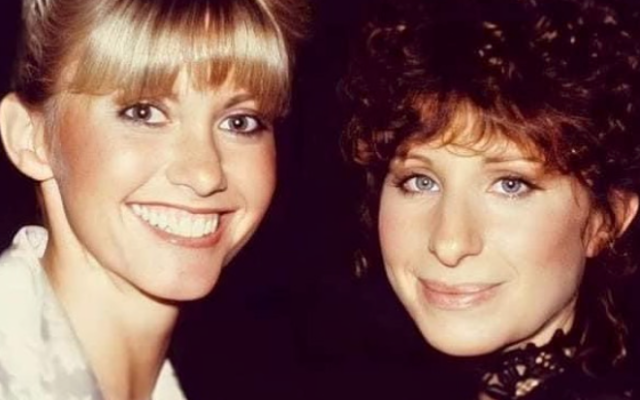
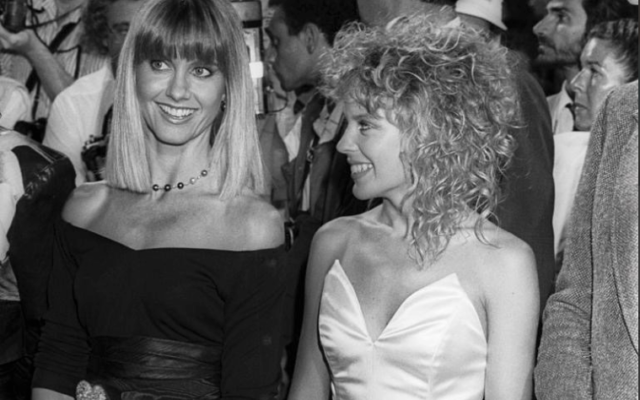
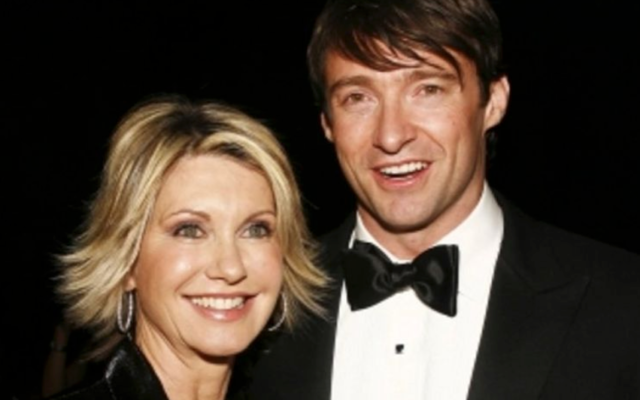
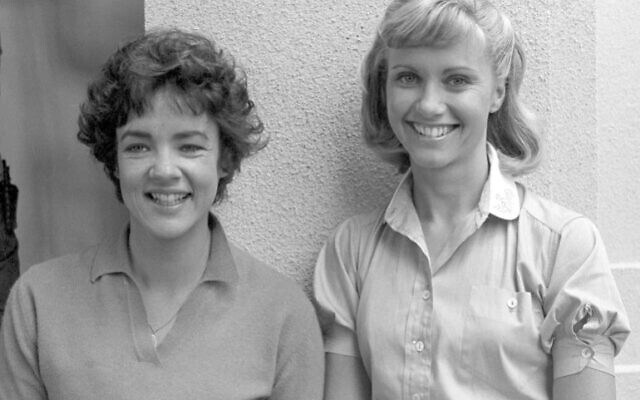
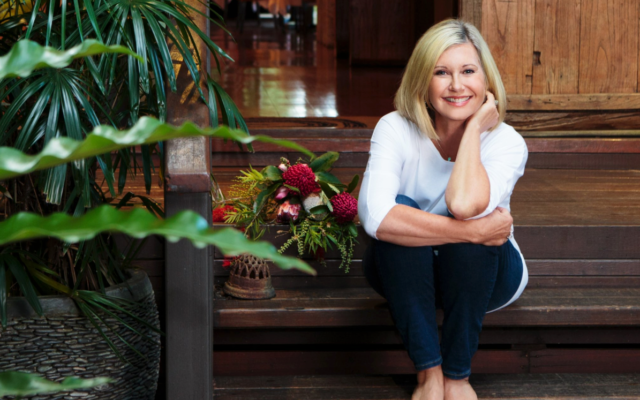
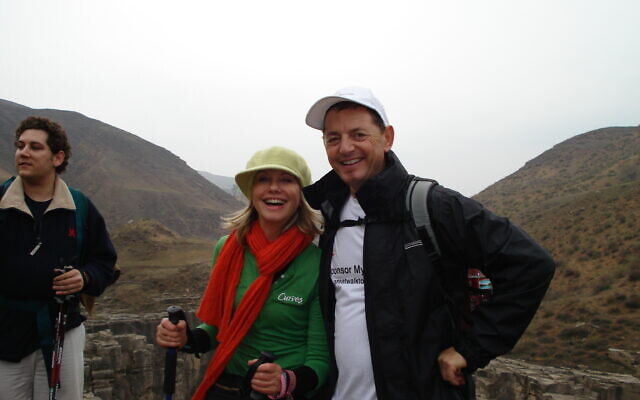
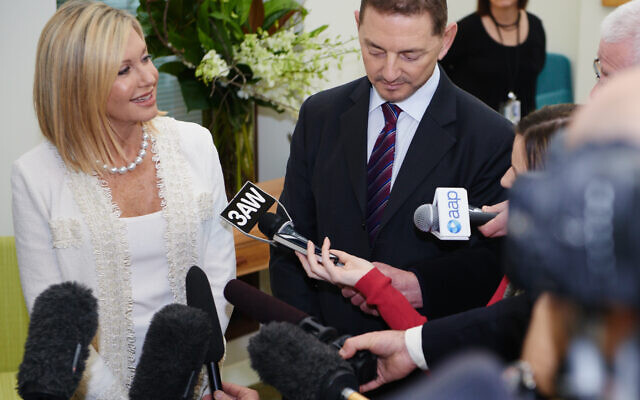
comments